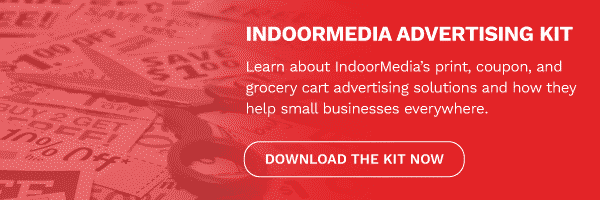You’ve seen and heard them over and over and over. You may have used them yourself.
Advertising clichés. No matter how much consumers—as well as businesses of all sizes—try, they are inescapable.
But just because advertising clichés are unavoidable doesn’t mean you should incorporate them into your marketing and promotional strategies. Here are several clichés you should immediately stop using in your advertising … and never go back:
“Check Out Our Ad”
You’ll hear this cliché on TV or radio ads, or might even see it on social media—a direction to visit a print ad to learn more about a business. This begs the question: Why didn’t you just market yourself more on the original channel? This cliché often is used to justify the expense of a costly print ad (that high cost is why fiscally efficient channels, such as register tape advertising, are gaining in popularity). Inviting consumers to call or visit your website or Facebook page is smart marketing. Inviting them to find your other paid advertising is a wild goose chase.
“For a Limited Time”
Coupons may come with an expiration date, which is fine for a number of reasons (e.g., bookkeeping, seasonal offers, and so on). However, using “for a limited time” to force potential customers to decide now whether or not to visit your business may lead them to toss out the coupon. Offer value with your coupons, but don’t apply pressure.
“We Deliver Great Customer Service”
This statement is cliché because, well, consumers already expect and demand great customer service. Emphasizing it in an ad could imply that your “great customer service” is a trade-off for a mediocre product. Tout your business and the excellent product you offer—if it is truly excellent, great customer service is already behind it.
“Bring This Ad”
When is a coupon not a coupon? When it’s in the form of “bring this ad” to receive a discount or other value. A business may take this approach with a newspaper ad so that it doesn’t appear to be an organization that offers coupons. However, with 96 percent of Americans using coupons across all demographics, that stigma is long gone. “Bring this ad” creates an unnecessary step of bringing an entire publication (or ripping it out of the newspaper) to get a deal, which is just annoying.
“Mention This Ad”
Along the same lines, “mention this ad” to receive a deal places extra onus on the consumer to remember the ad. Without some sort of coupon element, the consumer may simply close the publication and forget the ad existed. Also, if someone doesn’t remember the ad quite right, you may get a situation in which an employee is disagreeing with a customer on the details of the offer. Eliminate any confusion by including a coupon.
“10% Off!”
Coupons come with a perceived value and an actual value. With an offer of “10% off,” consumers might not draw either type of value and ignore your coupon for all but the most costly of services. Better to stick with an actual dollar amount discount that gives customers a clear idea of how much they will save. Or, use a higher percentage discount (at least 20 percent) that increases the perception of value as well as the actual value—thus increasing the odds someone will want to use the coupon and visit your business.
“New and Improved”
“New and improved” begs the question: Was your product or service not that good before? Commercial retail products are often advertised as “new and improved” every few years, to the point that consumers are numb to the message. For a restaurant or auto shop, “new and improved” might send a message to customers to cross their fingers and hope that the experience is better than before.
“The Best”
Successful businesses rightfully want to brag about their products or services by calling them “the best,” but when you do so without anything other than your word to back it up (such as a local magazine award), you risk customers disagreeing with your statement. For example, if you claim you have “the best steak in town,” a customer might post your cliché in a Yelp review, say your steak was only average, and suggest an alternative for a better steak. Market your excellence and go ahead, brag a little, but avoid absolutes.
Too Much Information
Not every advertising cliché is a saying or phrase. The design or layout of a coupon or grocery cart ad can be just as stale, ultimately decreasing effectiveness. For example, marketers and business owners might think that to get their money’s worth, they should cram as much as possible into an ad—that consumers crave and require all that information. But overwhelming viewers will not somehow inspire them to buy. If anything, it will just drive them away. Deliver an informative ad but don’t make it too busy—streamlined is often more effective than complex.
What advertising cliché do you think should be retired?




 By IndoorMedia Marketing
By IndoorMedia Marketing
